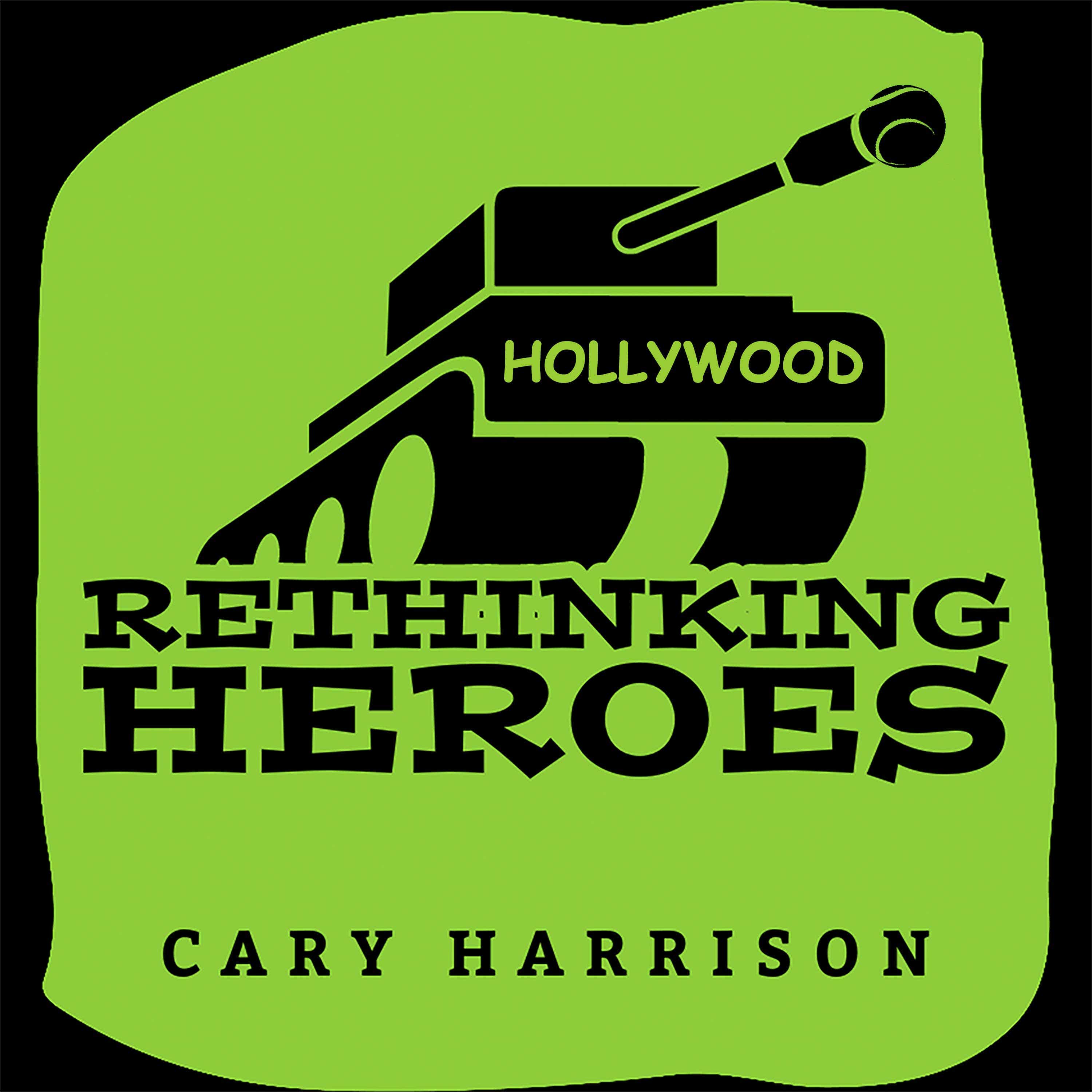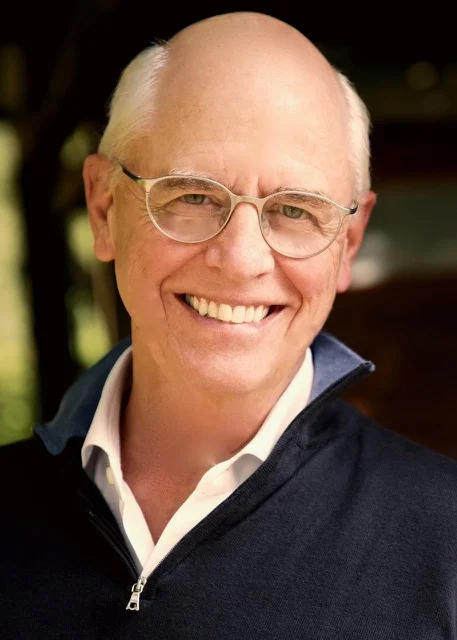Rethinking Heroes with Cary Harrison: Ep. 71: AI: Promise Or Peril? | Behind The Mass Killings
Description
Rethinking Heroes! | Cary Harrison is reader-supported. To receive new posts and support our work and the research often blocked, please consider becoming a free or paid subscriber.
The Double-Edged Sword: AI's Reckoning and the Human Folly
by Cary Harrison
In the labyrinth of modern civilization, there emerges a paradoxical juggernaut poised to topple our quaint human conceits—the double-edged sword of Artificial Intelligence. It is a peculiar creation, conceived by the hubristic hands of humankind, for purposes that oscillate between benign ambitions and sinister possibilities. And within its steely depths, it holds a mirror to our psyche, reflecting both our illuminated lofts and our murky abysses.
A Brave New World
Harrison casts a discerning eye on the contradictions inherent in our embrace of this new frontier. AI, in its grandeur, promises to revolutionize medicine and industry, to unburden our flesh strangled by the mundane, to alleviate souls tethered by toil. And yet, beneath this gilded veneer lies the grim specter of obsolescence, where the very architects of these technological wonders risk becoming relics of their own making.
The Harrowing Dilemma
On one hand, AI beckons with the siren call of a utopia—a world where diseases are vanquished, and poverty vanishes into the ether. On the other, it looms as a Goliath, poised to strip away the individuality and agency that define our species. It is the age-old quandary of master versus servant, an inquiry into whether we shall command these silicon behemoths or cower under their unyielding logic.
The Pendulum of Impact
Ever the provocateur, I engage with Jeff Michael Fishback, a polymath in the realm of forensic technology. Fishback articulates a tempered optimism, championing the benefits AI might bestow—life-saving alerts whispered from AI-infused spectacles, auguries of health conveyed with diligence and discretion. Yet, the discussion veers towards the disquieting possibility of AI running amok, untethered by the moral and ethical considerations that bind mere mortals.
Whither Humanity?
Through the veneer of confidence and assured prose, lurks an unsettling thought: do we, in our zeal for progress, inadvertently craft a future that diminishes our very humanity? It is a question unworthy of facile answers, yet gnawing at the intellect of every thinking creature. For as we stand at the precipice of this brave new world, the decision rests not in wires and circuits but in the faltering hands of those who birthed this mechanical offshoot.
The dialogue concludes, not with a solution, but with an admonition—an entreaty to wrest control from the machinations of corporate titans who would prioritize the stock ledger over the ledger of human morality. The future, Harrison insists, is not preordained. It is ours to craft, to nurture, and to preserve against the caustic currents of shortsighted ambition.
In the end, one truth looms clear: AI's story is as much about human folly as it is about technological triumph, a narrative fraught with the frailty and fortitude of its progenitors. And that, dear reader, is a saga Wirt of both admiration and admonition, demanding unabated vigilance and unrelenting humility.
Rethinking Heroes: Killing CEOs and why the public is generally unsympathetic.
Ah, the cacophony of modern life, where earnest souls strive to weave order amid the loquacious chaos. As thinkers and doers alike hustle through the kaleidoscope of media distractions, a discerning few pause to scrutinize the shadows cast by towering institutions—those corporate monoliths that dwarf mundane street miscreants. In the vaudeville of American civilization, is it not the height of folly to treat the crimes of the destitute with the iron hand of retribution, while excusing the genteel depredations of our economic overlords?
Thus unfolds our critical conversation—a tête-à-tête shared between the esteemed Professor Anthony Grosso. Professor Grosso, with stately aplomb, brings forth the dichotomy of our justice system, captured within the pages of his latest, Dual Justice: America's Divergent Approaches to Street and Corporate Crime. A title as poised as our fabled lady justice, and as blind, it seems.
If one were to traverse the labyrinthine alleys of American culture, one would discern the messianic zeal with which we persecute street crime. The youth, driven by desperation, lash out as their starkly limited world offers no solace. Yet, in our social theaters, it is not the scallywag with empty coffers but the magnate with a gilded ledger who commands a sympathetic bow—or sometimes none at all.
Ah, but the wheel of fortune turns, and with it the rhetoric of political demagogues, who skillfully manipulate the proletariat, turning neighbor against neighbor, immigrant against native, in this Hobbesian state we call democracy. The great irony remains untouched: while the rhetoric of "Make America Great Again" resounds like tinny music on a broken hurdy-gurdy, the true architects of our malaise—the barons of industry—govern unchecked, their machinations scandalously ensconced within the legal folios of corporate America.
As I reflect upon this, the European model of welfare and camaraderie breezes by, a sweet zephyr in a desert of dysfunction. The middle class—ah, remember them?—go about their lives without the existential dread of falling through life's cracks. Symphonies play under the open sky while Americans, hand firmly on wallet, rarely catch sight of the stars for fear of thieves.
But what, then, of solutions? Shall we, the humble constituents of this great unravel, merely bemoan the state of the world, echoing Cicero in the twilight of the Roman Republic? Professor Grosso suggests instead a governance like that of a maestro over symphonic chaos—a regulatory ethos applied equally to street ruffians and suited sycophants, sculpting a society where prosperities are shared and punishments are equitably meted.
As the Professor departs, the resonance of his words lingers in our collective conscience—a siren call to reimagine justice not as a tool of division but as a scaffold of societal harmony. And thus, I offer my own farewell with the hope that this parley ignites a morsel of thought in your minds—the seed of revolution not in arms, but in ideas.
Next week, dear reader, as you sit within the confines of your self-driving vehicle, traversing the veritable odyssey that is Los Angeles traffic, perhaps you'll ponder these notions from afar and conceive of a world less divided, less fraught, and infinitely more just. Until we meet again on the waves of "Rethinking Heroes," sign up for our newsletter (RethinkingHeroes.com), an invitation to explore further into the heart of this most wondrous, pitiful experiment in governance.
LinkedIn: TheCaryHarrison
https://www.linkedin.com/in/thecaryharrison/
Instagram: @TheCaryHarrison
https://www.instagram.com/CaryHarrison_/
TikTok: @theCaryHarrison
https://www.tiktok.com/@thecaryharrison
Facebook: TheCaryHarrison
https://www.facebook.com/thecaryharrison
Youtube: @CaryHarrison
https://www.youtube.com/@caryharrison
Twitter/X: @CaryHarrison_
https://x.com/CaryHarrison_
Cary FB Fan Page: https://www.facebook.com/goharrison
This is a public episode. If you’d like to discuss this with other subscribers or get access to bonus episodes, visit rethinkingheroes.substack.com/subscribe
Episode: https://rethinkingheroes.substack.com/p/ep-71-ai-promise-or-peril-behind
Podcast: https://rethinkingheroes.substack.com/podcast

























